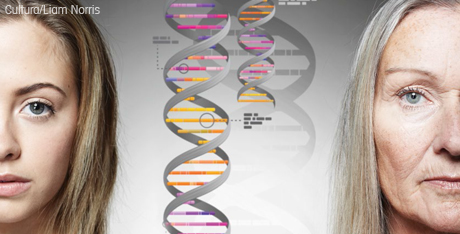For years now, we’ve been sold the notion that we are powerless to change what our parents passed to us in the way of traits. “My mother is a Type 2 diabetic, so I probably will be as well.” Or, “I’ll never be able to lose weight because my whole family is large.” Or, “Heart disease runs in my family.”
Many in the medical community perpetuate the idea that your genes determine your outcome, so you might as well accept the inevitable and intervene in surgical or pharmaceutical ways. But are we really slaves to our misguided DNA?
Recent studies suggest not, and the concept is actually not a new one. As far back as 1942, C. H. Waddington coined the term “epigenetics,” meaning outside or above genetics. His research indicated that there was more to our health than what our genome had in store.
The Science Behind the DNA
Consider this: Every cell in our bodies contains the exact same copy of our DNA, which is the blueprint for how we, our cells, are constructed. Yet our cells differentiate from one original fertilized egg into many different cell/tissue types. How does this happen unless other forces act on the genetic code, allowing or disallowing genetic expression?
We now know that there are specific proteins called histones that organize and group our DNA into nucleosomes, which act as the “spools” that our DNA winds around. But these histones also play a role in gene regulation, and if modified, genetic expression is altered.
We also know that certain DNA constituent amino acids can be biochemically altered to change genetic expression.
What it Means in Real Terms
What does all of this mean to you? Studies suggest that what you eat, what you are exposed to, and maybe even your mental attitude can affect your epigenetic activity. For example, certain foods may help prevent cancer, while exposure to many toxins increase your cancer risk.(1) Your diet and activity levels may influence your tendency for developing obesity in epigenetic ways as well, not just in caloric ways.(2)
In other words, it’s not just that food makes us fat; the wrong food may in fact reprogram our DNA to work differently.
We are complex organisms with intricate mechanisms at play in our health. We are also more than a collection of genes. Whether science or common sense, eating a diet low in sugar and carbs and high in fresh, organic produce, along with limiting toxic exposure, seems to positively affect a healthy genetic expression.




Sources